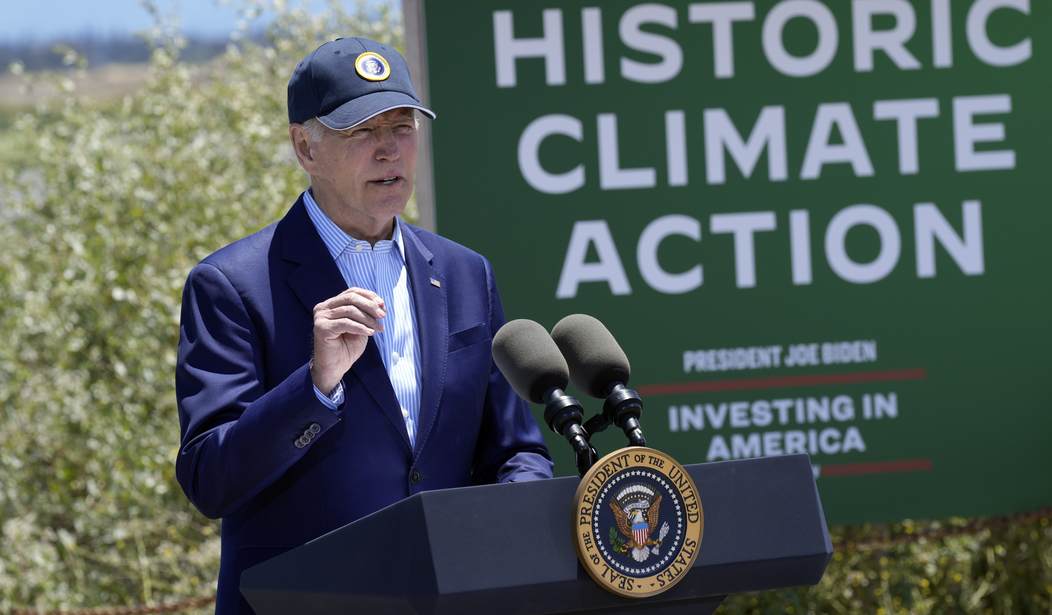It would be nice if we could have an honest debate about the issue of the environment for once, but those days are long gone, if they ever were here to begin with. For decades, the media has sensationalized apocalyptic predictions about the climate.
There’s always a new ice age looming, or global warming. There never seems to be a consensus as to whether the earth is warming or cooling, so in recent decades, we’ve been conditioned to use the more ambiguous and comprehensive “climate change,” which conveniently covers every possible weather calamity imaginable. Heat wave? Must be climate change. Cold front? It’s gotta be climate change. Wildfires? Obviously, that’s climate change, too. And, of course, climate change is blamed for pretty much every hurricane.
The prevailing narrative from the climate alarmists is the oft-repeated and long-debunked claim that 97% of climate scientists agree that man-made climate change is real. Meanwhile, more than 1,600 climate scientists worldwide have signed onto a declaration saying that there is no climate emergency.
“Climate science should be less political, while climate policies should be more scientific,” the declaration reads. “Scientists should openly address uncertainties and exaggerations in their predictions of global warming, while politicians should dispassionately count the real costs as well as the imagined benefits of their policy measures.”
One problem is that politicians are getting beaucoup bucks from green energy firms that are capitalizing on climate alarmism. So, they push bogus statistics, repeat absurd predictions like “the impact of climate change will be irreversible in ten years if we don’t do something about it now,” and exploit a child on the autism spectrum as a spokesperson for their movement.
We’ve known for some time that the United Nation’s Intergovernmental Panel on Climate Change has an agenda and prominent environmental groups have been fabricating or falsifying data, but the problem is even worse than we thought. Climate alarmism has become such a cult that if you’re researching climate science and you don’t give yourself completely to the narrative, you don’t have a prayer.
Just in the past week, a climate scientist admitted that he omitted key information on climate change to get his article on wildfires published in a top magazine. “And the editors of these journals have made it abundantly clear, both by what they publish and what they reject, that they want climate papers that support certain pre-approved narratives—even when those narratives come at the expense of broader knowledge for society,” Patrick T. Brown, a professor at Johns Hopkins University and doctor of earth and climate sciences, wrote in The Free Press. Brown admits in his column that climate science is more about scaring people with apocalyptic predictions than understanding how climate works. “To put it bluntly, climate science has become less about understanding the complexities of the world and more about … urgently warning the public about the dangers of climate change.”
Brown explains that there is an unspoken rule for writing a successful climate paper. “The authors should ignore—or at least downplay—practical actions that can counter the impact of climate change,” he explains. “If deaths due to extreme heat are decreasing and crop yields are increasing, then it stands to reason that we can overcome some major negative effects of climate change. Shouldn’t we then study how we have been able to achieve success so that we can facilitate more of it? Of course we should. But studying solutions rather than focusing on problems is simply not going to rouse the public—or the press.”
I remember learning in sixth grade about the scientific method, and it starts with an observation and a hypothesis, not a preconceived outcome. In other words, we can’t trust papers on climate science anymore because there’s no reason to be confident they are objective. But these are the studies and reports that are routinely cited by Democrats and government officials to justify expensive policies that are unnecessary.










